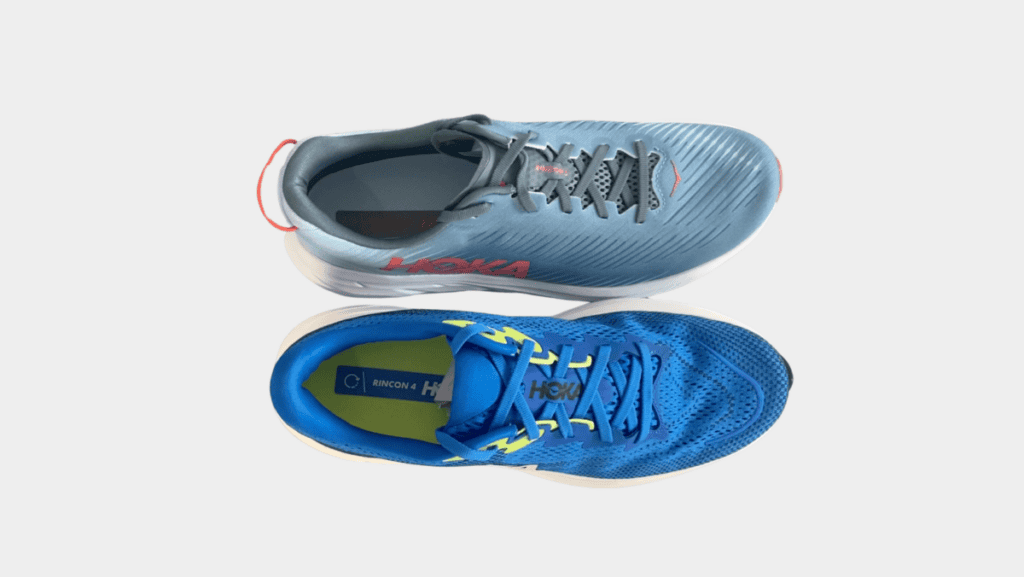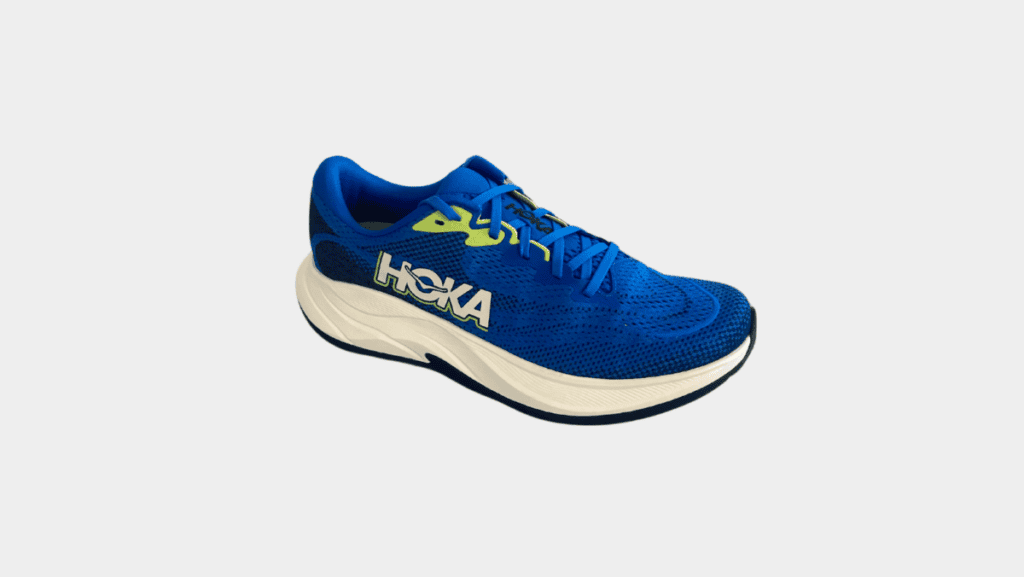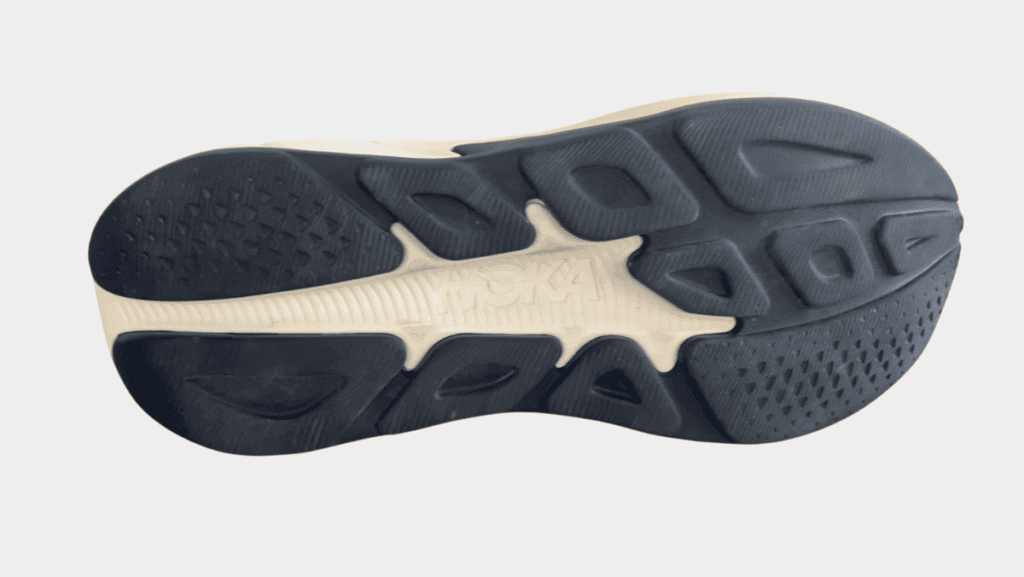The Hoka Rincon 4 is finally here, and today, we’re going to review it for you and compare it to the Rincon 3. We’ve taken both of them out for a couple of runs now to try and get a reminder of what the Rincon 3 felt like so we can accurately read how it compares to the Rincon 4. We purchased these shoes with our own money, so this is an unbiased review.
Weight and Upper Fit
As you can see, the Rincon 4 has a completely different geometry and a completely different look than the Rincon 3. It is slightly heavier than the previous model, 258g in a US 12 compared to 228g in the Rincon 3, so slightly heavier. We have a feeling that’s got to do with the upper, which is a little bit thicker. We’ll talk to you about that, and it changes to the midsole.
So, the drop seems to stay the same, so we’ve got a 5mm drop from the rear foot to the forefoot, but it’s completely different in the upper, so you can see it’s a double technical jacquard mesh, which is slightly heavier and not as breedable as what you had in the Rincon 3. You’ve got more cushioning around the heel counter. It’s missing that pull-on tag that you got on the Rincon 3, and you can see in the tongue that it’s slightly more cushioned and padded as well, again not gusseted, so it can freely move from side to side.

We found that the lockdown was pretty good, so we got no slippage and no extra movement in the shoe when we went for a run then, with the fit, we found that this is the size D fit, so the normal fit it was slightly tapered on the forefoot and a little bit tight on our toes and we feel probably need a size up, or we would try a wider option the 12d for us was just a little bit too tight compared to some of Hoka’s more recent models, where they’ve moved away from the tapered or tight toe box into the more roomy toe box. This definitely fits with the older trend of tapered toe boxes.
Midsole

Then, in the midsole, it’s a completely different shoe. So, with the Rincon 3, what you had was that really firm midsole that was quite snappy and quite rigid. What you get with the Rincon 4 is a much bouncier shoe, much more resilient. A lot more feedback, I would say it feels a lot more like the Mach 6 than it does like the Rincon 3.
So, I think they’ve moved completely away from that model; they’ve got a lot more of an aggressive forefoot, they’ve got a heel counter with a slight posterior lateral heel bevel so that helps you keep centred as you hit the ground, especially if you’re a heel striker. I found that the early rocker really propulses you forward. I didn’t particularly enjoy it for the slower runs, but when I was trying to go a bit more uptempo, it was really nice, a bit more snappy, a bit more bounce, compared to what you get in the Rincon 3. It has a completely different feel on the foot compared to the Rincon 3, a bit more like the Mach 6.

Outer Sole
They’ve applied a lot more rubberised EVA on the outer sole, which is for extra traction. The times that we’ve run and this so far have been dry, so we haven’t been able to properly test that, and we don’t know yet if it gives you that extra durability that Hoka claims.
Summary
So, where does this shoe fit? Due to the price, I would say it’s an entry-level uptempo lightweight shoe, not quite the Rincon 3, and probably not as good as the Mach 6.
It sits somewhere in between, and that’s probably where the price range matches. I would use it for uptempo, slightly faster runs, but I don’t think I’d enjoy it for longer, steady runs. If I had the choice, I’d pick the Mach 6 over this, and then I’d stick with my Rincon 3 for those firmer, snappier rides.
If you like it and are interested in it, remember it’s a little tight in the toe box. You might need to go half a size up or pick the wide version if you have a wider foot.
If you have a naturally wider foot, you might be interested in the Topo Phantom 3.


